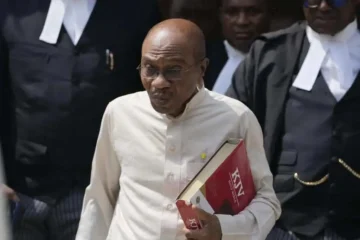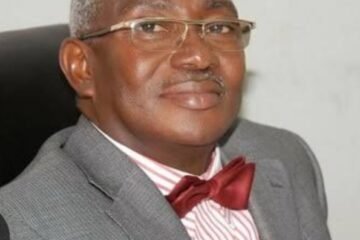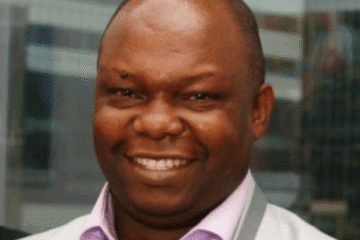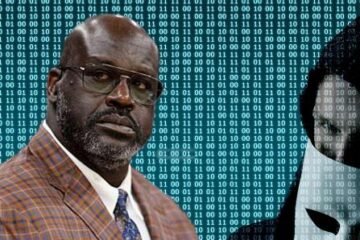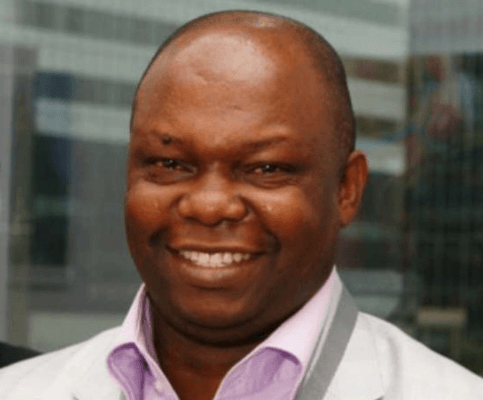By Achadu Gabriel, Kaduna
As the back and forth over Tax Reform Bill (TRB) of the President Bola Tinubu administration lingers, the number of supporters of, and those against, the bill have continued to widen by the day.
A noticeable, worrying perspective to perception of the bill is that it seems to now wear regional, religious and faith togas, depending on what part of the country one comes from.
The Northern States Governors Forum (NSGF), mostly of the core north, and Emirs first rejected the bill in a communiqué issued at the end of their meeting held at Sir Kashim Ibrahim House, Government House, Kaduna, shortly after the bill was presented to the National Assembly.
Although the meeting had some attendance input from their Northern Christian colleague-Governors, most of the latter were represented by their Deputy Governors or Secretary to State Governments (SSGs) and some chiefs; but when the decision to kick against the bill was discussed elaborately, the latter group reportedly remained mute.
However, while what was domiciled and echoed in the public domain was that the North stood against the bill, Christian leaders in Northern Nigeria appeared to have none of that stance.
They endorsed the TRB, according to a competent source, at “the expense of their Muslim counterparts that had consistently kicked against the bill for obvious reasons,” with the Christians’ position allaying fears that implementing the bill would ruin the North’s economy.
Penultimate week, Christians thew their full weight behind the bill. Several media reports stated that “Northern Christian leaders have declared their support for President Bola Ahmed Tinubu’s tax reform initiative.”
Indeed, the Christian leaders urged their followers to gain a deeper understanding of benefits of the bill for the region in particular and Nigeria generally.
Media reports said “this resolution was made during a town hall meeting organized by the Christian Awareness Initiative of Nigeria (CHAIN) in Kaduna, themed ‘The Church and Society: Tax Reforms and Matters Arising’.”
Speaking during the event, former Speaker of the House of Representatives, Rt. Hon. Yakubu Dogara, delivered a dressing down to the Northern leadership, accusing them of neglecting the region’s development despite decades of national political dominance.
Dogara emphasized the importance of understanding the proposed tax reform, calling for honest discourse on the issues facing the North.
“Our problem in the North is not about VAT allocations or political appointments. The North has controlled the presidency for over 40 years, with key positions in the Senate, House of Representatives, and NNPC, yet the region remains underdeveloped,” he noted.
The former Speaker pointed out that much of the North’s allocated resources were mismanaged, highlighting that funds meant for hospitals, schools, and infrastructure often ended up squandered or spent abroad.
His words: “Instead of addressing our challenges, many of our leaders prioritize personal gain. If this continues, no amount of leadership or resources will change our circumstances.”
Dogara defended the tax reform as a crucial step for economic growth, explaining that it aims to simplify Nigeria’s 11 existing tax laws into just two, making the system more investor-friendly.
“Every investor considers tax policies before committing funds. A simplified system will attract investments, expand opportunities, and boost our economy,” he explained.
On his part, CHAIN’s Executive Director, Rev. Joseph John Hayab, alled on Christian leaders to embrace knowledge and guide their communities on critical national issues like the tax reform.
Thumbing up the tax bill, he said, without mincing words: “The tax reform bill holds many prospects for Nigeria. While some areas require adjustments, it is critical to support reforms that can move our nation forward.”
Quoting the Bible book of Hosea 4:6 which reads ‘My people perish for lack of knowledge’, Hayab insisted on acquiring knowledge on matters such as the bill by those opposed to it, urging leaders to avoid religious or ethnic sentiments in assessing the reform.
To the latter group, he emphasized the need for constructive dialogue and collaboration.
The event was attended by key figures including Special Adviser on Media and Public Communication to the President, Mr Sunday Dare (represented by Mr. Simon Achuba); Northern Christian Association of Nigeria (CAN) chieftain, Elder Sunday Oibe; Archbishop Praise, Archbishop Mathew Ndagoso, and other Christian leaders from across the Northern states.
The leaders collectively stressed the importance of unity and accountability in tackling the North’s challenges, urging citizens to prioritize national development over divisive rhetoric.
As Nigeria navigates its path to reform, the role of faith-based organizations (FBOs) in fostering understanding and accountability remains vital.
The message from Kaduna was clear: true progress will only come when the North confronts its clearly unnecessary and avoidable internal contradictions and collaborates for the nation’s advancement.
In a similar manner, a Muslim youth group under the umbrella of Northern Youths cautioned the Federal Government (FG) against the new tax bill, saying “it’s designed to ruin the region.”
Also, another group, Northern Youth Group, rejected the bill and called on the North’s lawmakers to throw it out.
Furthermore, a Northern good governance advocacy group, Northern Star Youth Empowerment Initiative, led by Dr Abdullahi Idris, in a statement dated December 18, 2024, rejected the bill.
Although the group described itself as a non- political, non-tribal and non-religious youth movement that aims at uniting and protecting the interests of the North, it is a pressure group that seeks to promote good governance, unity, progress and development of Northern Nigeria.
In a statement issued to newsmen in Kaduna, Dr Idris, who is the group’s Director General (DG), however, added that having studied the controversial bill thoroughly, his organization had concluded that though there were salutary aspects to it, sections, especially those that deal with the distribution of Value Added Tax (VAT) revenue, were unfair and will lead to economic adversity for the North.
He therefore called on the Tinubu administration to withdraw the bill with immediate effect.
Wondering why there allegedly weren’t enough consultations before the bill was presented to the National Assembly, Dr Idris called on federal lawmakers, especially those from the North, not to endorse it lest they incur the wrath of their people.
He recalled that the bill was presented for passage into law, in its current form, against the advice of many well meaning Nigerians, which, according to him, included the National Economic Council, because of what he described as the document’s potential to benefit some sections of the country at the detriment of others.
In the Southern part of the country, which is predominantly Christian, investigations show that support for the bill is at almost 80 per cent with majority of the South-West, South-South and South-East zones giving their nod to the document in its entirety, thus projecting the polarizing, religion-selfish silhouette to acceptance of the bill nationally.
The questions consistently being asked by many neutrals, without corresponding answers, are: What has a bill of that nature got to do with faith lines? And what would be the fate of losers and winners; Christians in the North and South, and the Muslim North, in the event that the TRB scales through, or is dropped in the long run?
Only time will tell.
But for now, President Tinubu is fixated on going ahead with the bill.
This much he said on Monday night during his first Presidential Media Chat when journalists confronted him on the matter.
His words: “Tax reform is here to stay. In today’s economy, we cannot continue to do what we were doing in the past. We can’t retool with old and broken folks.
“The essence of tax reform is to eliminate colonial-based assumptions in our tax environment.
“Every tax situation without outcry is not a tax. You can’t satisfy uniformly the largest community of tax evaders. Look at this tax reform; it is pro-poor. The vulnerable are not to pay taxes.
“The hallmark of a good leader is the ability to do what you have to do at the time it ought to be done. That is my philosophy.”
Nonetheless, he said he was prepared to make some concessions, what he described as “cutting edges”, on the matter.




